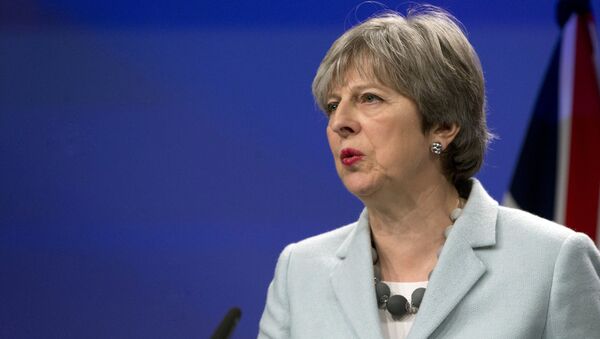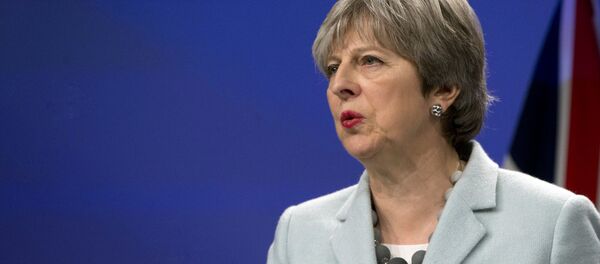The Prime Minister's much-heralded Cabinet reshuffle was supposed to show that despite losing her party's Parliamentary majority in June after a general election she didn't need to call, she was still very much in charge. In fact, it's only demonstrated her weakness. For a start, the four ‘Big Beasts': Chancellor Philip Hammond, Foreign Secretary Boris Johnson, Home Secretary Amber Rudd and Brexit Secretary David Davis remain in their positions. May couldn't touch them because if she did, she'd run the risk of a leadership challenge.
READ MORE: Boris Johnson Remains UK Foreign Secretary as PM May Reshuffles Cabinet
May wanted to shift Education Secretary Justine Greening to the Department of Work and Pensions but Greening refused and resigned from the Cabinet. Again, a sign of a PM who can't get what she wants. We're also told she would like to have promoted Jeremy Hunt, the Health Secretary, to be her Deputy, but this was put on hold too. Hunt was instead offered a new position as Business Secretary, but he rejected this. In the end the Minister who the Prime Minister was keen to move, stays in place, but with an extended brief to cover social security as well as Health. May's Cabinet colleagues know how weak her position is and so are emboldened to dig their heels in.
'Strong and stable leadership'?. Those words of Theresa May have come back to haunt her.
The reality is that Britain has a government which officially holds office but can do very little, without the approval of the opposition. Let's not forget, it only has a majority in Parliament because of a £1bn deal with the DUP.
Flagship Tory policies, which the party campaigned on at the general election have had to be dropped. Only this weekend, May announced there would be no Parliamentary vote to end the ban on fox-hunting- an important issue for many rural Tories.
Speaking on the BBC, May said by way of explanation for her U-turns: 'If I look back at the messages that we got from the election, one of the clear messages we got is that there are a number of areas in which people were concerned about what we were proposing.'
READ MORE: Labour Voters 'May Abandon Party' at the Next UK Election Because of Brexit
But does anyone seriously think we'd be hearing all this if the Tories had not lost their majority? The simple truth is that any attempts to bring back fox-hunting would be roundly rejected by the current Parliament. Ditto the appalling plan to means test pensioners' winter fuel payments.
British politics is in a state of limbo- and the situation is likely to continue for quite sometime. Turkeys don't vote for Christmas, and Tory MPs, however frustrated they are with Theresa May's leadership, won't want an another election with Labour generally ahead in the polls. So just occupying the crease Geoffrey Boycott-style, even if no runs are actually scored, is better than the alternative.
It's a view that's shared broadly by large swathes of what can be called 'The British Establishment'. Keeping the left-wing Jeremy Corbyn, who promises a clean-break with neoliberalism and a neoconservative foreign policy, out of Number 10, is the number one priority for the elite. Yet, Corbyn already dominates the political landscape, even if he's not officially in power.
As I argued in Sputnik in September, 'Jez' is Britain's Prime Minister in all but name. Ironically, it's his popularity with the public which is delaying his formal entry into Downing Street.
After what happened last June, the odds are strongly against Theresa May being allowed to fight another general election for the Tories, especially if it’s against a brilliant campaigner like Corbyn. But if there’s a challenge now, then the pressure for the new leader (if successful in defeating May), to call an election within twelve months or so would be enormous. Jacob Rees-Mogg, a strong Brexiteer, is the bookies favourite to be the next Tory leader at 4-1 but could he unite the party? All things considered, the Tories are in a pickle.
And at present, it’s hard to see a way out for them.
The views and opinions expressed in this article are solely those of the author and do not necessarily reflect those of Sputnik.
Follow Neil Clark on Twitter
Support his AntiStalker Crowdfund



